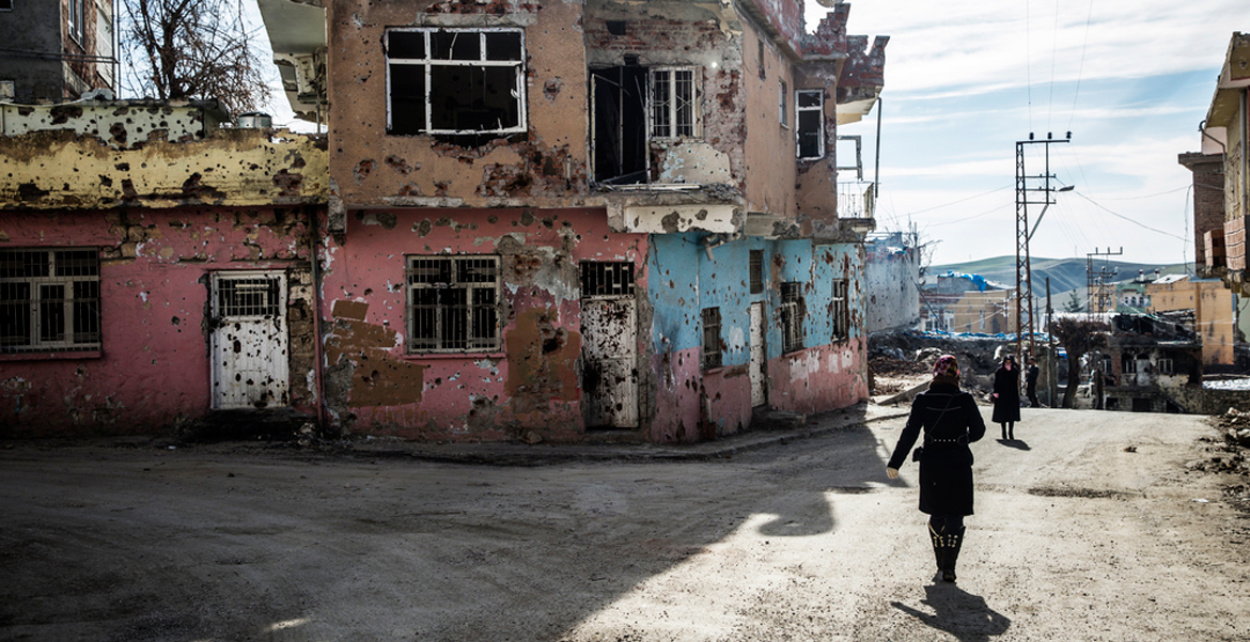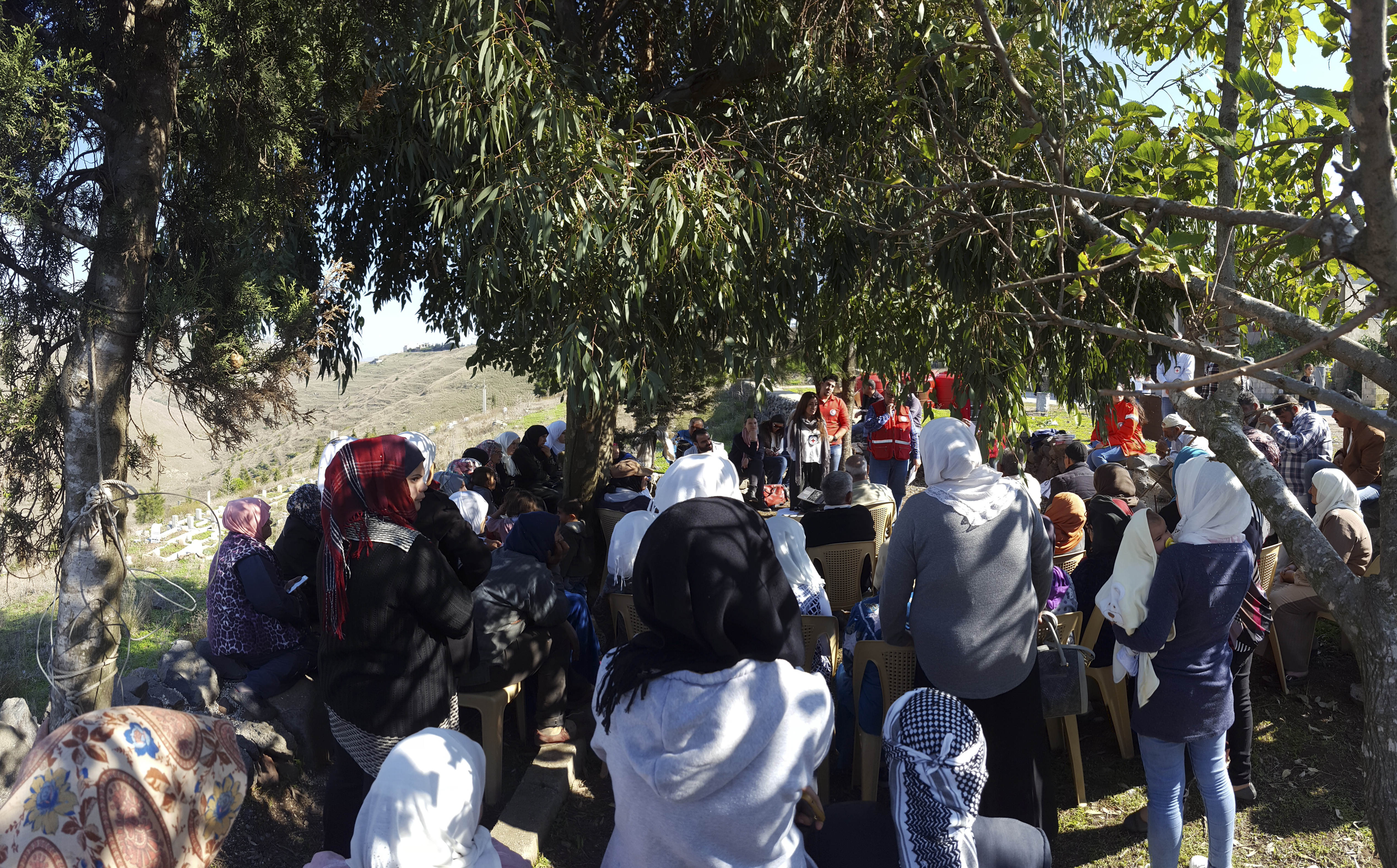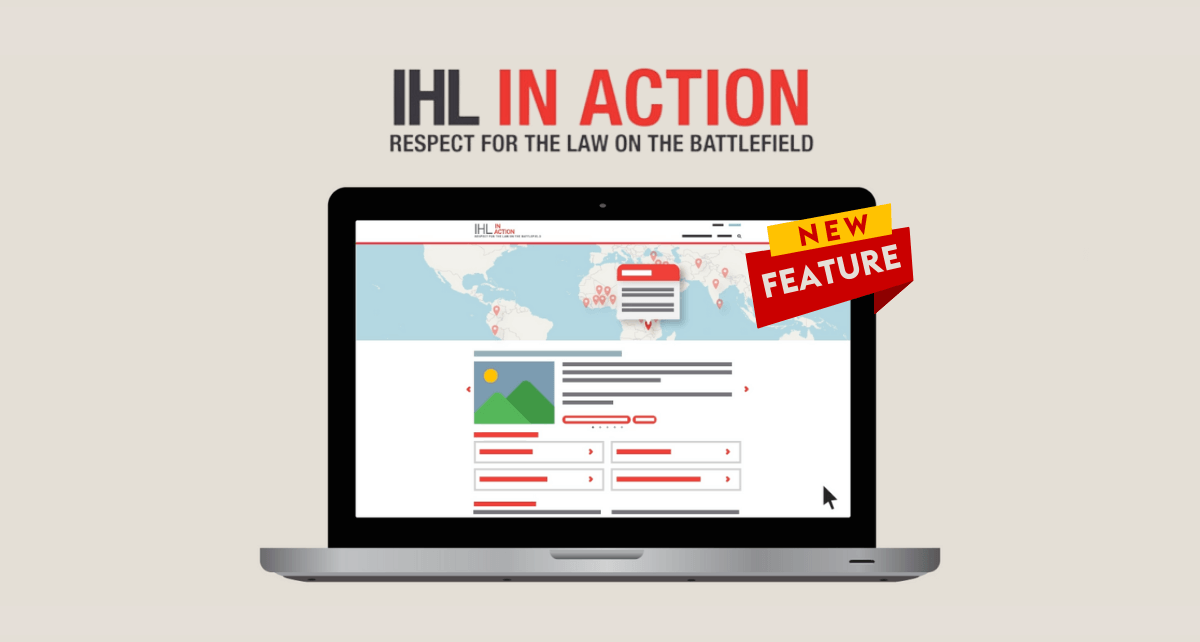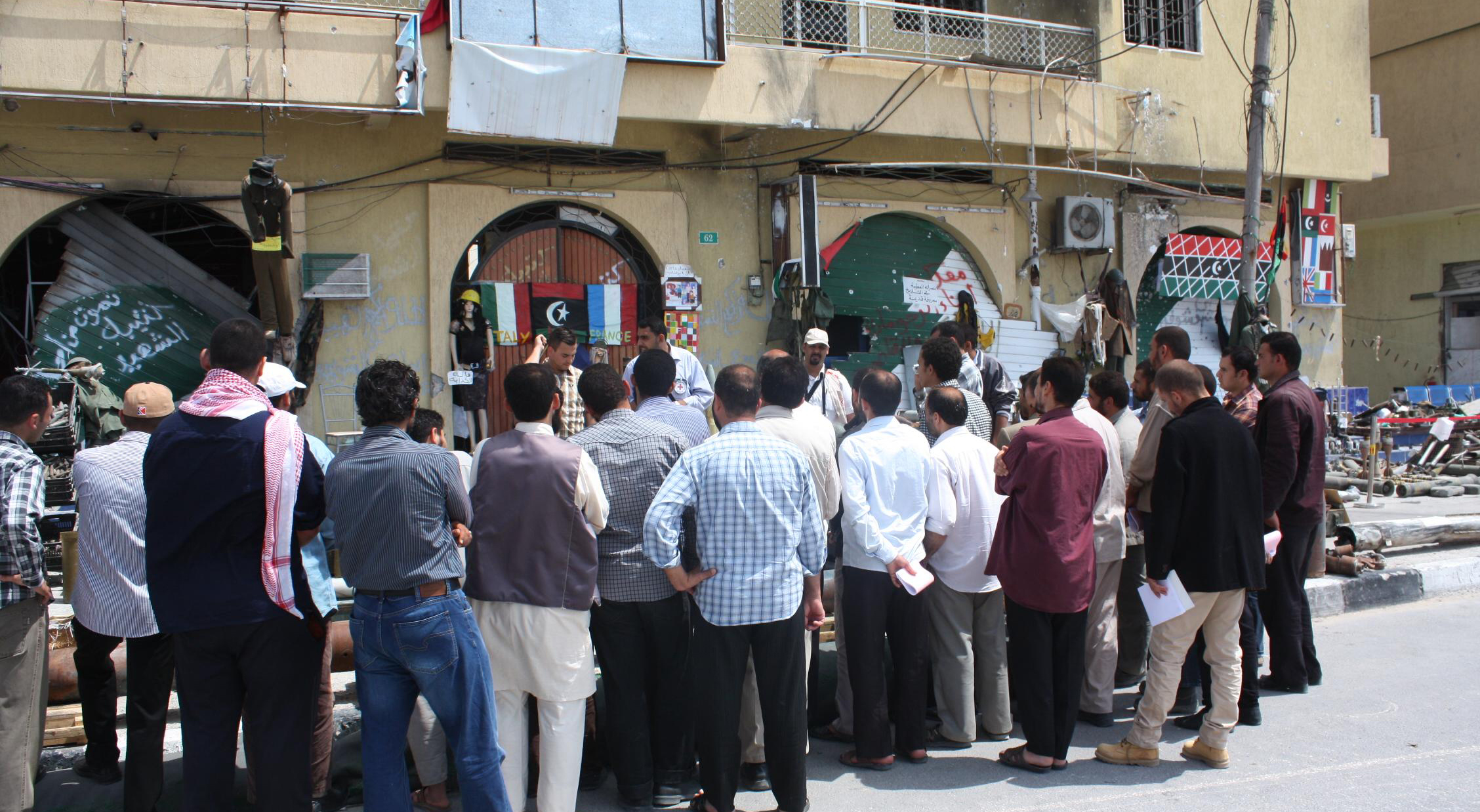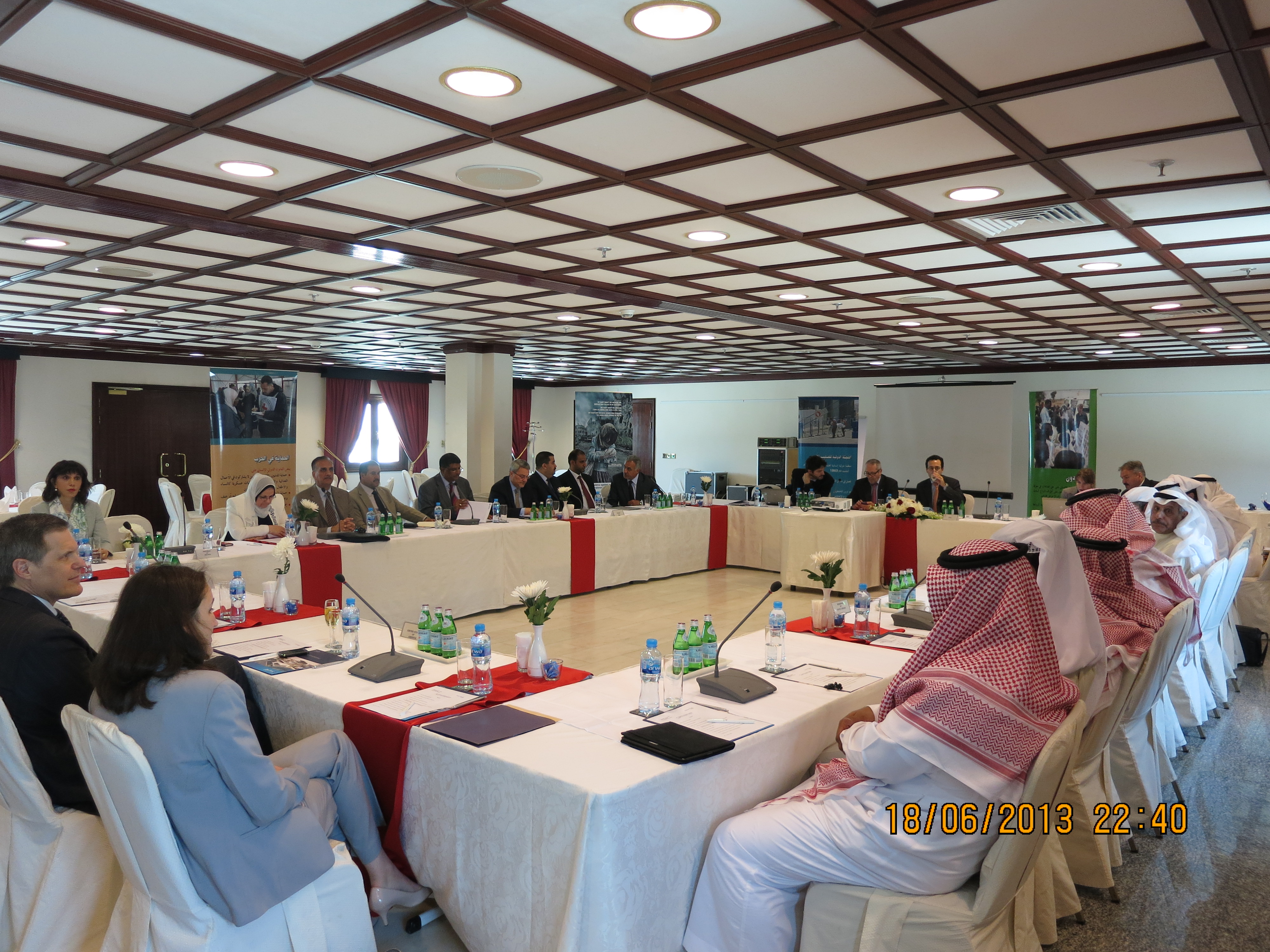Case prepared by Sharon Banian, LL.B student under the supervision of Adv. Yael Vias Gvirsman, Clinic Director, IDC University, and Jemma Arman and Isabelle Gallino, LL.M. students at the Geneva Academy.
A. PKK STATEMENT TO THE UNITED NATIONS, 24 JANUARY 1995
The Kurdistan Workers Party (PKK) issued the following statement at a press conference in Geneva on January 24, 1995.
Dear members of the press, May I greet you all on behalf of the Kurdistan Workers Party (PKK).
[…]
The PKK, as a party in this conflict, has always observed the conventions on war. The relevant application denoting such acceptance was submitted to the ICRC and other concerned bodies on January 23, 1995 on behalf of PKK Genaral [sic] Secretary Abdullah Ocalan.
The declaration, moreover, also contains the following points:
1. In its conflict with the Turkish state forces, the PKK undertakes to respect the Geneva Conventions of 1949 and the First Protocol of 1977 regarding the conduct of hostilities and the protection of the victims of war and to treat those obligations as having the force of law within its own forces and the areas within its control.
2. To end any doubt, the PKK regards the following groups as part of the Turkish security forces and, therefore, as legitimate targets of attack:
a - members of the Turkish armed forces;
b - members of the Turkish contra-guerrilla forces;
c - members of the Turkish Intelligence Service (MIT);
d - members of the Turkish gendarmerie;
e - village guards.
The PKK does not regard civil servants as members of the security forces, unless they come within one of the above categories.
3. The PKK will treat captured members of the Turkish security forces as prisoners of war.
4. The PKK will disseminate this statement and the rules of the Geneva Convention of 1949 and First Protocol of 1977 to its forces and asks for the assistance of the ICRC. It has adopted a system of discipline to ensure respect for these rules and the punishment of those who break them. It accepts the principle of command responsibility. The PKK would accept an offer of services from the ICRC.
5. The PKK calls upon the Turkish goverment [sic] to give the same undertakings and to accept an offer for services from the ICRC.
Finally, the PKK calls upon all parties to the Geneva Convention, the UN, the OSCE, the Council of Europe, and the ICEC to take the necessery [sic] steps to end the war or ensure that the Turkish state and the PKK respect their obligations under international law.
On behalf of PKK General Secretary Abdullah Ocalan. January 24, 1995
B. WEAPONS TRANSFERS AND VIOLATIONS OF THE LAWS OF WAR IN Türkiye
[…]
PKK Violations and Sources of Weapons
[…] Although the PKK recently announced its intention to abide by international law, evidence from 1995 suggests that the PKK has violated this pledge.
[…]
RECOMMENDATIONS
To the PKK
C End abuses against civilians.
C Cease punitive attacks against village guard families and relatives.
C Cease all summary executions, especially of state civil servants, unarmed village guards, alleged "state supporters" and "collaborators."
[…]
VI. ABUSES BY THE PKK
[…]
Beginning in December 1994, the PKK publicly redefined its strategy to comply with international law, apparently in reaction to the negative publicity it was receiving for its systematic violations of the laws of war. On December 5, 1994 PKK leader Abdullah Öcalan told the newspaper Özgür Ülke that the "PKK categorically undertakes to comply with the provisions of the Geneva Conventions," promising that his fighters would refrain from attacking civilians and that PKK members violating the conventions would be punished. On January 24, 1995, the PKK issued a statement restating its promise to abide by the Geneva Conventions and listing what it defined as "military targets": members of the armed forces, "contra-guerrillas" (shadowy groups that are suspected of responsibility for death-squad style killings of suspected PKK members), Turkish intelligence agents, and village guards. The PKK stated that civil servants such as teachers would not be targets unless they fell into one of the four categories above. On February 14, 1995, the PKK's armed wing issued a statement in Athens saying it would attack only those villages which had willingly joined the village guards. Guards who were coerced by Turkish security forces into joining, on the other hand, would be spared. The statement also said that PKK guerrillas would only launch attacks against village guards after giving ample warning and opportunity for non-combatants to escape.
PKK actions in 1995, however, demonstrated that the PKK had not substantially changed its practice of violating the Geneva Conventions. Human Rights Watch has received the following information concerning PKK violations:
C On January 1, PKK fighters used indiscriminate fire during a raid in Hamzal2, a village integrated into the village guard system in the Kulp district of Diyarbak2r province. Eight women and seven children were killed. Two children and three women were wounded in the attack.
C On January 12, PKK militants reportedly raided the village of Narl2ca, located in the Kulp district of Diyarbak2r province. Five civilians were killed, including two women, two children, and an elderly man. As the result of a rocket attack on a house, two women and four children were wounded.
C On January 16, PKK militants committed two summary executions during a raid on the village of Erdemli, located in the Sason district of Batman province.
C On February 27, PKK fighters raided the village of Kocakuyu, located in the Ömerli district of Mardin province, killing four civilians, including a child, who were related to the head of the local village guard unit, who also died. An additional eight civilians were wounded, including seven children.
C On March 31, PKK fighters kidnapped two journalists from the Reuters and Agence France Press news agencies who were traveling in southeastern Türkiye, holding them prisoner for nearly a month before releasing them unharmed.
[...]
C. TO GENEVA CALL: RULES FOR THE CONDUCT OF HOSTILITIES, 2011
[…]
A-General Rules:
[…]
2- Within the legitimate defence strategy organized forces of the state, military organizations and counter-organizations that support them with their armed forces and those establishments that participate in war, the warmongers and those who attack civilian people shall be targeted.
3- Within the legitimate defence warfare civilians and defenceless people are not targeted. They must be protected and their lives must be guaranteed. In war the lives of those affected, such as the wounded and captured, are to be protected and medical treatment supplied it is essential to give the opportunity for international humanity organizations such as Red Cross and Red Crescent to work and to inspect freely.
4- In warfare international legal inspection shall be accepted. The work of the media will be safeguarded.
5- It shall give the opportunity for the formation of a war crimes commission on the basis of laws for war which will be adhered to by both sides and will be binding.
6- On the basis of international law on war crimes actions will be open to investigation by civil democratic organizations. During these it will be essential to protect the lives and material possessions of civil democratic establishments.
7-All parties form an investigation commission for internal breaches of rights.
B-With Regard to Civilian and Captives:
1- The parties to the conflict shall protect the civilian population and its possessions and shall differentiate between the people and armed forces at all times. Civilians shall not be the targets of assaults.
2- Under no conditions can civilians be forced to migrate nor can they be prevented from going to their property or homes.
3- Respect will be shown to all people’s beliefs and worship whether they have participated or not in the clashes.
4- Vehicles, which are necessary for the civil people to continue their lives, will not be attacked. An embargo on food will not be applied and destruction of food stocks will not be committed.
5- The lives, physical and mental integrity of those individuals who are out of the clashes or who have not directly participated in clashes shall be protected. Whatever their nationality, religious belief, cultural and sexual state they shall be protected at all times and without discrimination. All will be treated humanely.
6- The protection of children, women and elderly will be given a high priority. Children’s right to education will not be restricted.
7- Those under the age of sixteen (16) will not take up arms and those under the age of eighteen (18) will not participate in armed clashes.
8- All respect will be shown to captives of war and to the lives, honour, individual rights and beliefs of civilians under the authority of the other party. These individuals shall be protected against all kinds of violence. Their rights to see, communicate and to obtain help from their families shall be protected.
9- All have the right to benefit from legal guarantees. No one can be held responsible for an action that they have not perpetrated. No one can be subjected to physical and mental torment and torture. No one can be subjected to racist and discriminatory practice.
10- No matter under what conditions there shall be any punishment without judgment. At the same time extra judicial executions shall be investigated and shall be accounted for.
11- Respect shall be shown to individuals’ life and physical integrity (Murder, rape, disablement, torture and torment shall not be practiced).
12- Crimes such as torture, rape, and compulsion to prostitution shall be subjected to the full weight of the law.
C-With Regard with Armed Conflict:
1- Those who have surrendered, or due to other reasons have not involved in the conflict, shall not be killed or harmed.
2- In warfare (no matter under whose control the wounded and the sick are) they shall be brought to safety and treated. The signs of Red Cross and Red Crescent shall be accepted as protective signs.
3- Respect shall be shown to the dead in war times. No destruction of corpses shall be undertaken nor will they be exposed to the media or in places open to the public.
4- Those who died in war shall be handed over to their families and it will be facilitated.
5- Village guards and spies shall be surrendered and neutralized, actions shall not be only in order to kill.
6- In conflicts the neutralization and surrending [sic] shall be taken to be fundamental.
7- Forests will not be burnt or otherwise destroyed
D-With Regard to Weapons:
1- All kinds of weapons of mass destruction, including biological, nuclear and chemical weapons (suffocating, burning, irritating etc. gases) shall not be used.
2- Weapons that burn, such as napalm, lava, and phosphorous, or create destruction o [sic] humans, plants, animals and the ecological balance shall not be used.
3- Anti-personel [sic] landmines shall not be used.
4- The use of traps and explosives should be careful not to let civilian life in danger.
5- Cluster bombs shall not be used.
Defence Commission
D. AUSTRALIA: COMMITTEE ON INTELLIGENCE AND SECURITY: REVIEW OF THE RE-LISTING OF PKK AS TERRORIST ORGANISATION
[...] The leadership had officially and publically stated it would hold its members to account if any civilian was killed in an operation.
[...]
However, the Department’s submission stated that the PKK has claimed responsibility for a number of recent attacks:
- 8 September 2015 – PKK militants bombed a police shuttle bus escorting customs officials at the Dilucu border crossing between Türkiye and Azerbaijan, then conducted an armed attack against the police officers. The militants killed 13 police officers and injured one other.
- 10 August 2015 – the PKK conducted a series of attacks in Istanbul. A car bomb exploded outside the Sultanbeyli Fatih police station, injuring 10 people. PKK militants then opened fire on emergency service workers and police investigators who responded to the bombing, killing a police officer. Two PKK militants and a police officer were later killed in clashes elsewhere in Istanbul.
- 22 July 2015 – PKK militants killed two police officers in their home in Ceylanpinar, Sanliurfa province.
The Committee notes that the PKK publicly claimed responsibility for at least two of these attacks through a Kurdish media organisation with links to the group.
[...]
E. HUMAN RIGHTS WATCH WORLD REPORT: TÜRKIYE, 2016
[...]
The breakdown in 2015 of the government-initiated peace process with Abdullah Öcalan, the imprisoned leader of the armed Kurdistan Workers’ Party (PKK), was accompanied by an increase in violent attacks, armed clashes, and human rights abuses in the second half of the year.
[...]
The most serious escalation of violence followed the June general election. The government held ISIS responsible for a July 20 suicide bombing that killed 32 students and activists from Türkiye who had traveled [sic] to the southeast town of Suruç to join efforts to rebuild Kobani. The PKK blamed Turkish authorities for the bombing, and local PKK associates killed two police officers in nearby Ceylanpınar. In response, the Turkish air force repeatedly bombed PKK camps in northern Iraq and later in Türkiye. The PKK countered with a series of deadly attacks on police and army conveys.
[...]
During further curfews and military operations in towns with neighborhoods sealed off by the PKK youth wing—including Silvan, Nusaybin, and Diyarbakir’s Sur district—civilian deaths were regularly reported by media and human rights organizations. There was a rise in credible reports of serious ill-treatment in detention.
Discussion
I. Classification of the Situation and Applicable Law
1. From the information provided in the documents above, how would you classify the situation between Türkiye and the PKK? What additional information would you require? (
GC I-IV, Art. 2 and
Art. 3;
P I, Art. 1;
P II, Art. 1)
2. What is the applicable law? Why does the PKK refer to the Additional Protocol I? Do you think it applies to this situation? (
P I, Art. 1)
II. The Conduct of Hostilities by Non-State Armed Groups
3. Who may be lawfully targeted in a non-international armed conflict under IHL? A State’s armed forces? Can the definitions of members of the armed forces in the Third Geneva Convention Article 4A and/or Additional Protocol I Article 43 be used in a non-international armed conflict for assessing whether they are targetable? (
GC III, Art. 4;
P I, Art. 43)
4. What do you think of the list of legitimate targets provided in Document A (para. 2)? Under IHL, which of these categories do you think are legitimate targets at all times, and which are only targetable when directly participating in hostilities?
5. When may intelligence gathering amount to direct participation in hostilities? When may police officers and village guards be considered as directly participating in hostilities?
6. Under IHL, is there any obligation to use non-lethal means when possible? Is there any obligation to arrest rather than kill an enemy fighter? (
P I, Arts 35(1);
51(5)(b);
CIHL, Rule 14)
8. (Document C., para. B.7.) What is your opinion of the age restrictions placed on the recruitment and use of children in hostilities? Do they reflect IHL as applicable to armed groups?
III. Elements Contributing to Respect for IHL
9. Is IHL binding on non-state armed groups? Why? Does a non-state armed group need to declare its intention to comply in order for IHL to be binding upon it?
10. (Document C, para. D) Are weapons conventions binding on non-State armed groups? Or are armed groups only bound by the customary prohibitions and restrictions on weapons? Does the list provided in Document C para. D reflect IHL? What other weapons would you have added?
11. What might motivate a non-state armed group to declare its intention to comply with IHL in general? In the case of the PKK? Why might a non-state armed group want to avoid “negative publicity” (Document B)? What impact might such statements have on negotiating peace agreements?
12. In your opinion, are either Document A and/or C “special agreements”, as provided for in Common Article 3? (
GCI-IV, Art. 3).
13. Do non-state armed groups have an obligation to disseminate IHL? To whom?
14. What steps might the leadership of a non-state armed group need to take to ensure that IHL commitments are respected and implemented in practice? How might the centralised or decentralised nature of an organisation impact upon this?
15. (Documents D and E) How do you evaluate PKK’s compliance with IHL after the publication of its Rules for the Conduct of Hostilities in 2011?
16. Can organisations such as Geneva Call provide IHL training to groups that are considered by some States and international organisations as “terrorist groups”? Should they?
